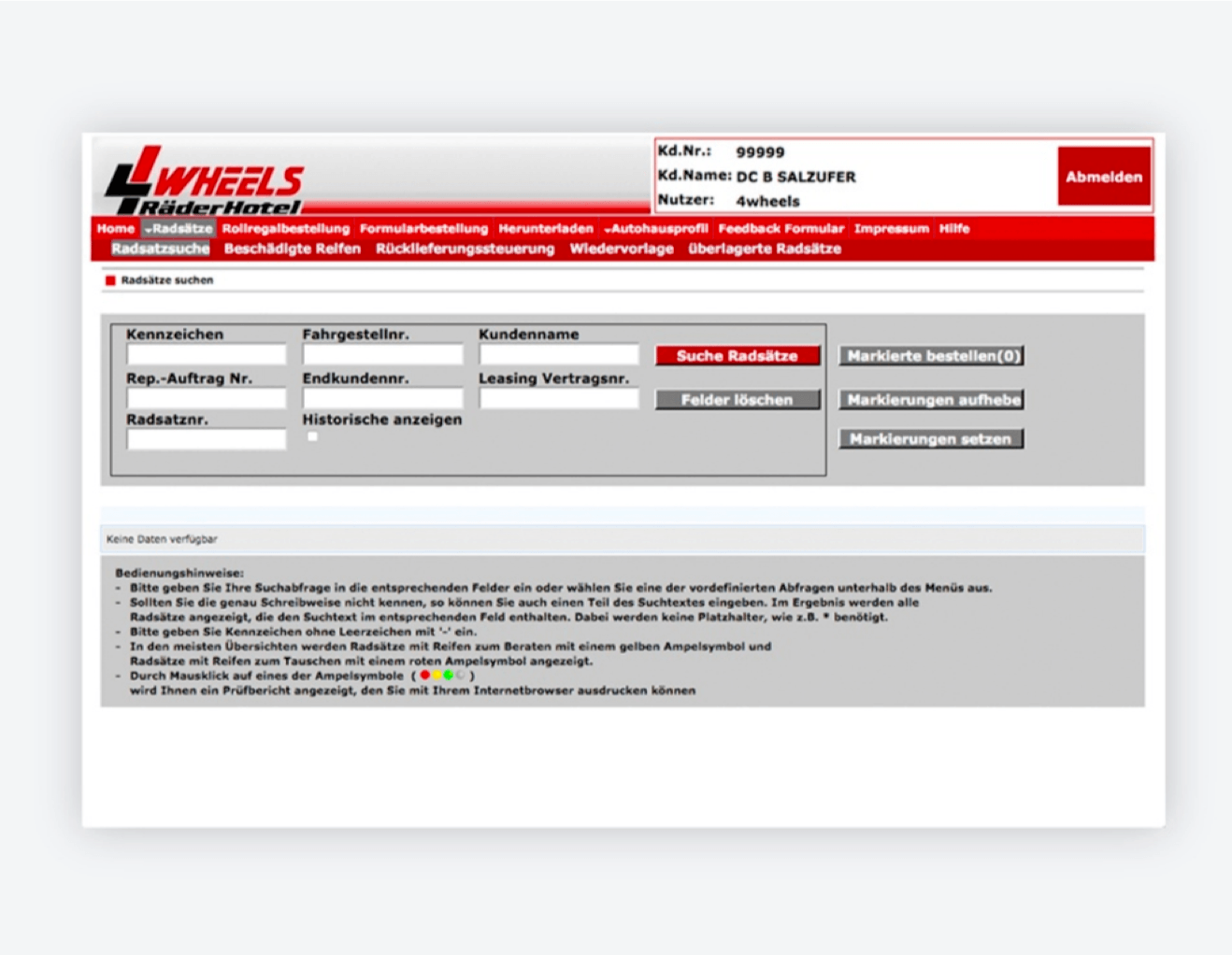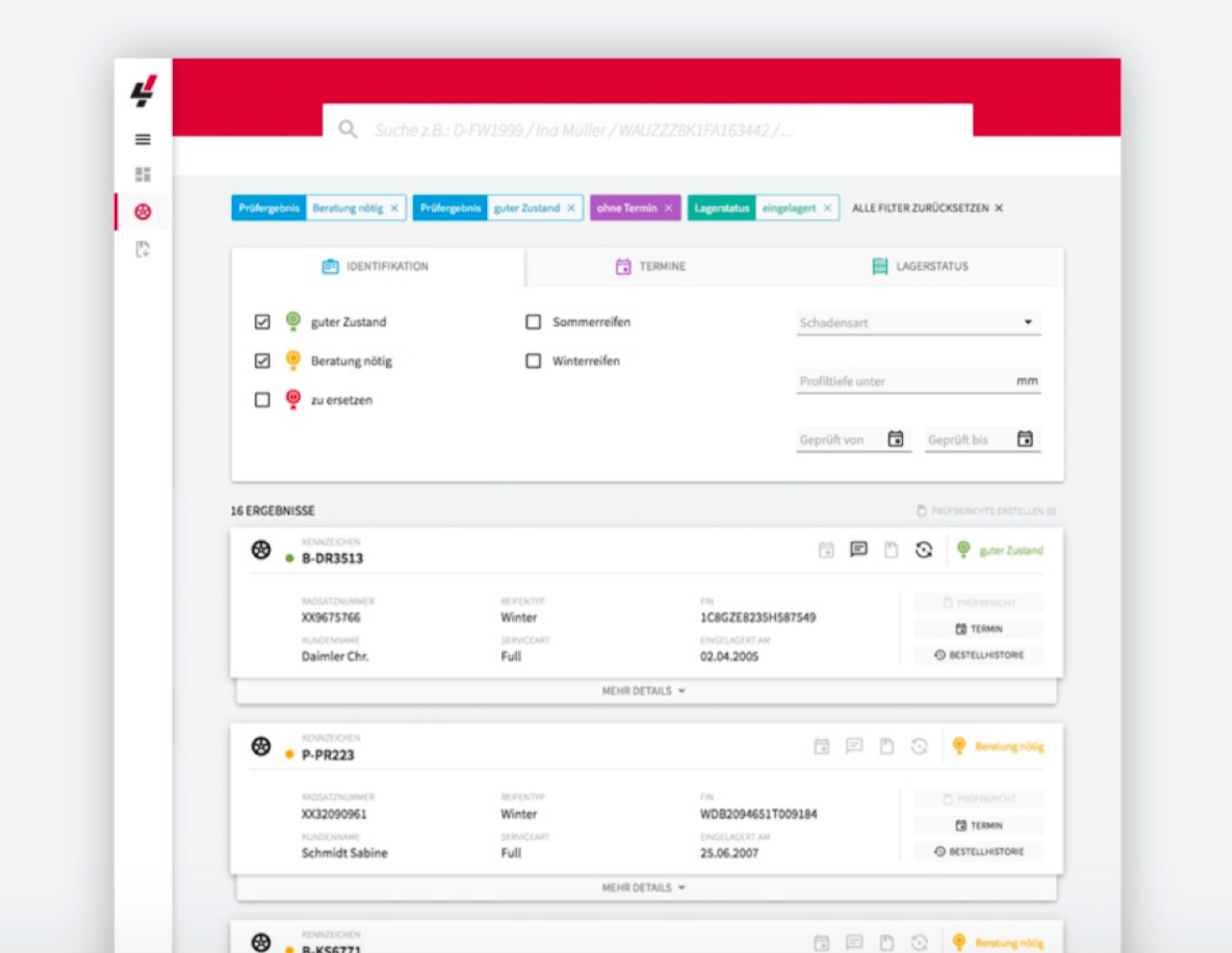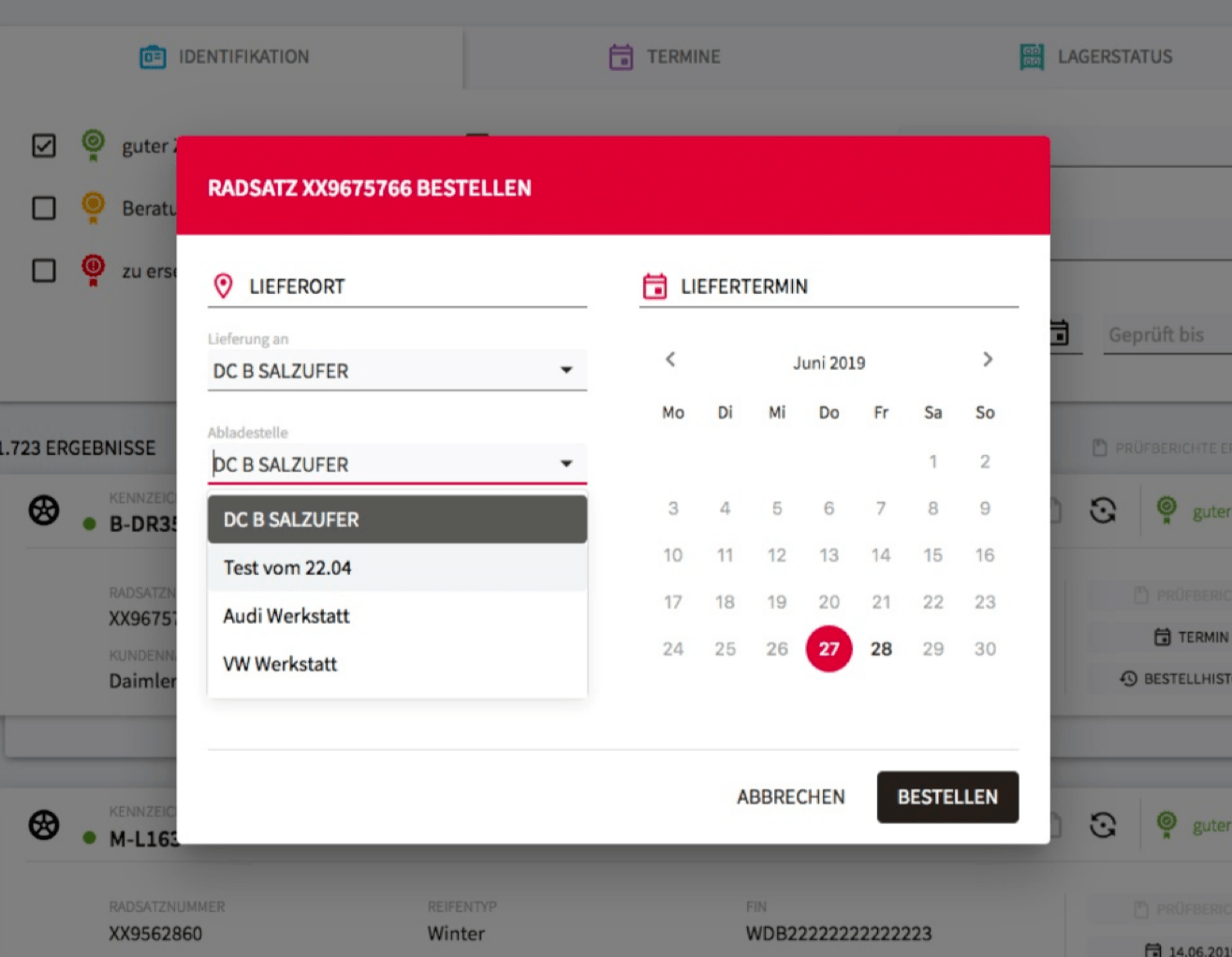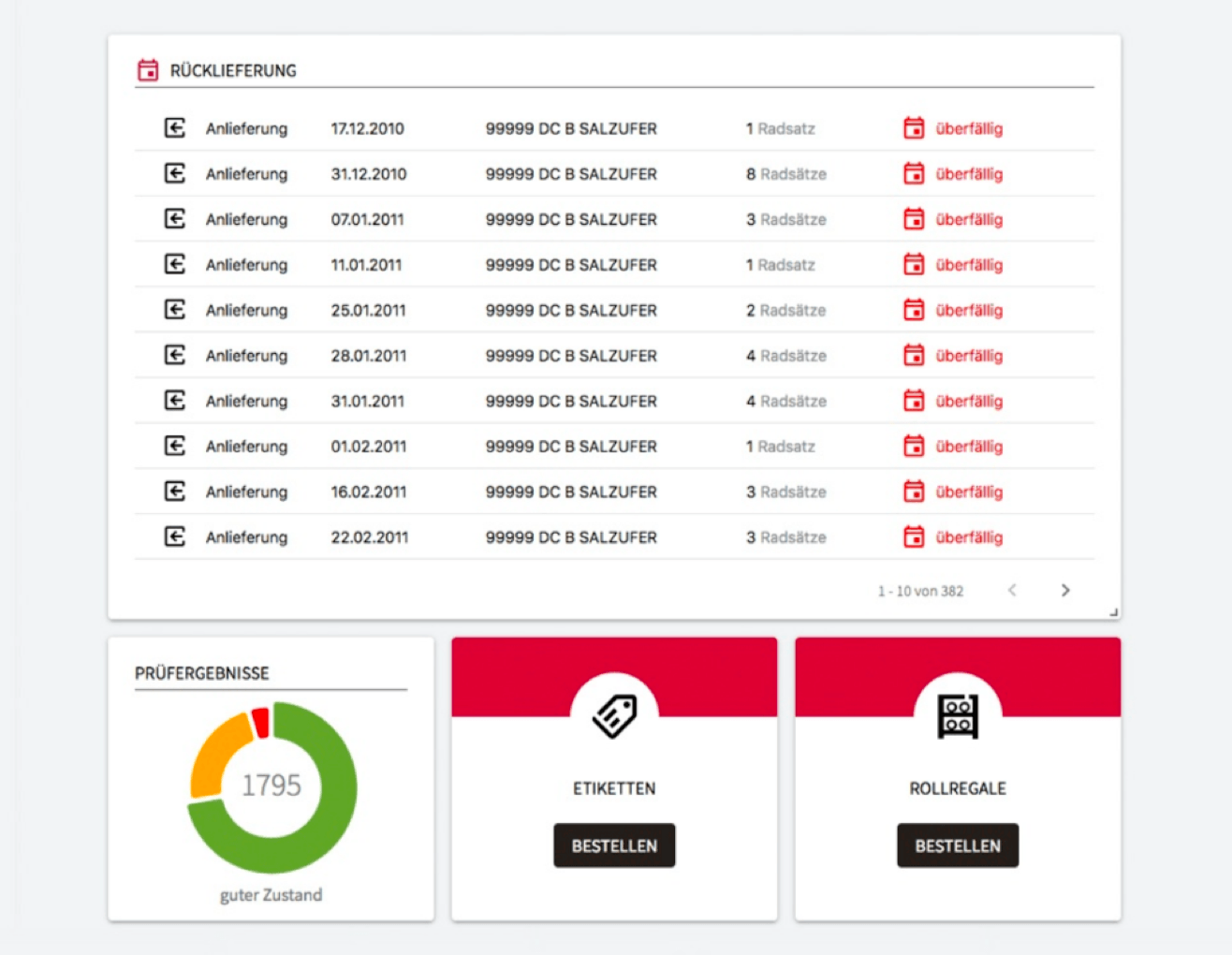I will be pleased to advise you.
Anneke Schmeer, Customer Success Managerin

4WHEELS: Market leader in Germany
4WHEELS is the German market leader in wheel and tire management. The service provider stores wheel sets (summer and winter tires) for car dealerships and workshops at over 80 locations throughout Germany. In addition, 4WHEELS offers its customers further services: Checking wheelsets for damage, reporting, repair services, etc.

Starting point
Outdated front end: a nuisance for customers.
To manage wheelsets digitally or book other offers, 4WHEELS customers were using a front end that was clearly getting on in years. It was not only technically outdated, but also confusing and not very intuitive to use. Our brief: a complete overhaul of the application, designed to be user-friendly and also scalable, as 4WHEELS would like to expand its offering in the near future.

Cooperation
The front end was developed agilely from the customer's perspective.
4WHEELS had already tried to modernize the front end in the past. However, these projects based on conventional development methods had not led to the desired success. That's why 4WHEELS was prepared to embrace the agile approach with us. Initially, this meant being open: no deadlines, no fixed budget, no specifications. Instead, together we questioned previous basic assumptions and requirements and examined all components of the front end in terms of their benefits.

Main focus
Focused on standard and use cases.
The result: the 4WHEELS front end “IRIS” has been greatly simplified visually and in terms of content and adapted to modern usage habits. Instead of various input fields and a list of “operating instructions”, there is now a single (Google-like) intelligent search field. Customers only see the functions and information that cover 80-90 percent of all use cases. Further details and functionalities are always just a click away, but do not overload the basic design.

Implementation
MVP at an early stage of the beta phase.
Based on the use cases, we defined the requirements for a so-called “minimal viable product”, i.e. an initial deliverable solution. We brought this into the beta phase at an early stage in order to be able to work as quickly as possible on the basis of user feedback. Thanks to the chosen technical setup, the product can be expanded and further developed at any time without affecting ongoing operations.

Advantages
Customer-friendly, modern and scalable.
The new IRIS is a customer-friendly solution in every respect: clean, modern, functional. The application is hosted in a Kubernetes cluster and is therefore infinitely scalable. The product runs stably even under high load and is equipped for extensions to the services in the front end.

Another advantage
Added value for sales and customer service.
As most of 4WHEELS' competitors are still working with outdated systems and user interfaces, the well thought-out front-end renewal gives 4WHEELS a real competitive advantage. And 4WHEELS customers also benefit in terms of sales and customer loyalty: Clear filter and overview functions make end customer management easier. Statistics, e.g. with recommendations as to which customers would benefit from further service or advice, make it possible to actively approach them.